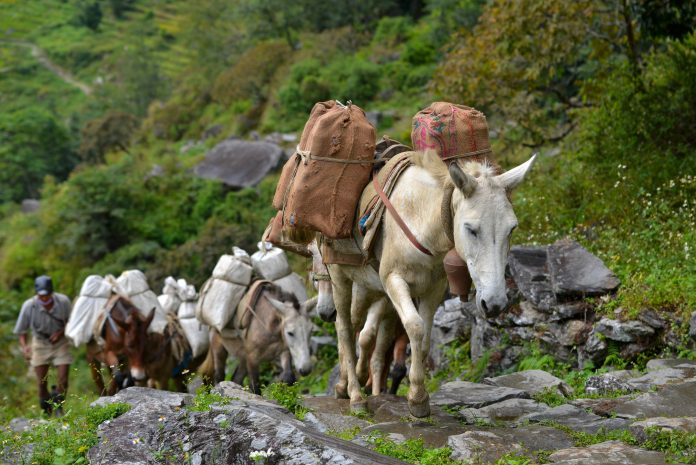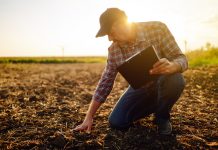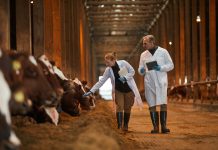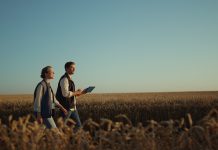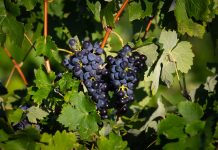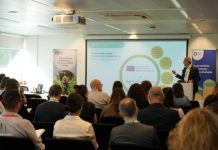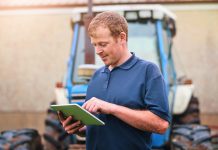Frances Goodrum, Head of External Affairs, Brooke Action for Working Horses and Donkeys, walks us through why we need to protect the invisible enablers of food security in light of COVID-19
“Food security exists when all people at all times have physical and economic access to sufficient, safe and nutritious food that meets their dietary needs and food preferences for an active and healthy life. – World Food Summit, 1996.
Working animals across the world have always played a key role in providing food, from transporting goods to draught power behind smallholder farms. There are around 100 million working horses, donkeys and mules helping 600 million people keep their families afloat in many low- and middle-income countries.
When we talk about working livestock and their protection, it’s important we recognise these animals as invisible enablers of food security and livelihoods.
The intrinsic link between people, working animals and food is under threat
At an event co-hosted by working horse and donkey charity Brooke, Hiver Boussini, Senior Animal Affairs Officer at the African Union Interafrican Bureau for Animal Resources (AU-IBAR) said: “As we forge ahead in this crusade to mainstream the role of working livestock in food security, we should be mindful about the delicate balance between human, animal and plant products. Working livestock are a key asset when it comes to food security – they provide direct income across a wide range of sectors, they facilitate agriculture and food production, their income-generating role allows rural and urban communities to buy more food with their increased purchasing power and they, therefore, increase overall access to food.” COVID-19 has put this delicate balance under added pressure, in terms of a lack of funding and capacity to act at the policy level.
So what could happen to this balance? In short, less food on the table. In Burkina Faso, most households use donkeys for transporting goods to the market, according to Brooke’s recent survey. Losing a donkey could cause households to lose their cultivated products, including an average 38% loss of millet and 41% for sorghum, essential foods for local communities. These losses could be particularly acute in some regions, between 43-95% in the North Centre to 52-87% in the Sahel.
There is an increasingly urgent case for recognition of working livestock in the food security agenda for policy and programming. Investment in livestock is not proportional to the significant contribution of these animals to agricultural gross domestic product (GDP), which can be as high as 40% in some low- and middle-income countries.
The UN predicts that the COVID-19 pandemic could double the number of people suffering from hunger (WFP, 2020). Policy action must be approached holistically with animal health and welfare better considered.
Protecting livestock and supporting food security
So, what does greater protection look like? As a bare minimum, working livestock must be included in local and regional policy and programmes that align with international standards, such as the OIE Terrestrial Code. Specifically, UN FAO’s definition of livestock must be universally adopted to ensure these animals are recognised across the world for their contribution to food value chains. To bolster this, the contribution of working livestock to SDG 2 ‘zero hunger’ should be reflected in the indicators and targets, with enhanced data collection woven into the indicators under SDG 15 ‘Life on Land’.
This year, the UN Secretary-General will convene a Food Systems Summit as part of the Decade of Action to achieve the Sustainable Development Goals (SDGs) by 2030. The summit will launch fresh actions to deliver progress on all goals, each of which relies to some degree on food security. Here are four key recommendations to ensure working livestock are integrated into policies for stronger food systems globally:
- Governments and international agencies should seek technical support from civil society to foster sustainable partnerships that incorporate animal health and welfare provisions and include indigenous knowledge into food security programming.
- National agricultural censuses and surveys need to be completed at least every five years to ensure up-to-date data which is comprehensive, covering all livestock species as defined by the UN FAO. This data will form the basis of robust interventions to strengthen global animal health systems and help future-proof against zoonotic outbreaks that devastate food security.
- Multilateral aid agencies and institutional funders should support existing livestock data initiatives, such as the SEBI Livestock Data for Decisions initiative, to include data on the comprehensive contribution working animals make to the livestock sector.
- National governments must introduce legislation to regulate exploitative industries and trades which harm animal health and welfare, risking the food security of their owner. Specifically, Brooke recommends that governments in countries affected by these trades and industries ban donkey slaughter for the trade-in their skins and improve conditions for people and animals in industries, such as brick kilns and coal mines. There is a cost-benefit to preventing livestock health and welfare issues, such as disease, through animal health and welfare mentoring and training.
As nations continue to reverberate from the shock of COVID-19, let all of us who have a stake in this space do our bit to raise the voice of invisible livestock in policy, so that they can continue to put food on the table across the world.

